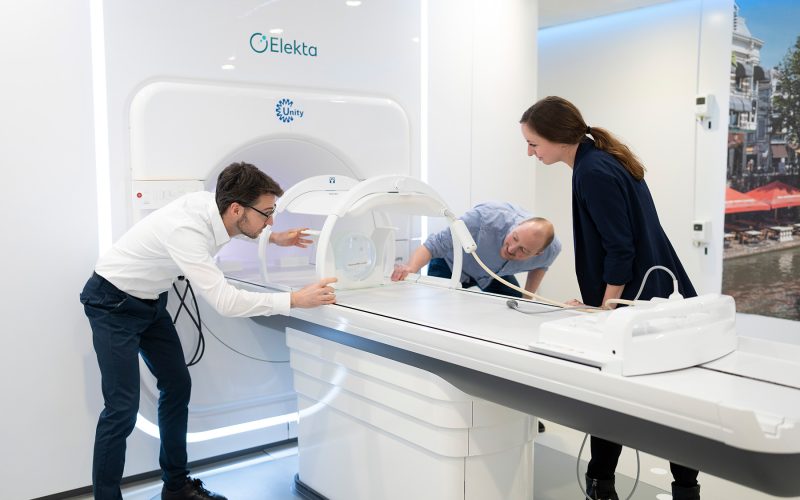Two researchers from UMC Utrecht, Alberto De Luca and Stefano Mandija, have each received a prestigious Vidi grant from the Dutch Research Council (NWO). These grants, worth up to €850,000, enable promising scientists to answer key research questions. For example: how can we make the brain’s connections more visible? And how can we detect tumors faster and without surgery by measuring the electrical conductivity of tissues? With their innovative MRI techniques, Alberto and Stefano will explore these questions in depth.
Alberto De Luca, Assistant Professor at the Image Sciences Institute, will use his Vidi grant to develop new MRI methods that can visualize how neighbouring areas of the brain exchange information through local small scale connections. These “superficial white matter” connections are currently difficult to image but are essential for local information processing and integration in the brain and play a key role in brain function. By advancing these methods, Alberto aims to improve our understanding of how the brain works and to support better diagnosis and understanding of neurodegenerative diseases such as Alzheimer’s disease.
With these new techniques, we can gain deeper insight into how the brain functions and detect early signs of brain damage. Ultimately, this can help better understand how neurodegenerative disorders affect the brain, potentially informing future treatments.
Stefano Mandija, Assistant Professor at the Department of Radiotherapy and Lead of Translational Imaging Research in the Imaging Division, focuses on developing a new MRI technology that measures the electrical conductivity of human tissues. This property differs between healthy and cancerous tissues and changes during treatment, making it a promising, non-invasive way to detect tumors and monitor treatment response. His research will apply this technique to brain, breast, and prostate cancer, three of the most common cancer types worldwide, with the goal of making cancer care more personalized and efficient.
By measuring the electrical conductivity of tissues, we can potentially detect tumors and monitor their response to treatments earlier than conventional MRI methods, enabling future personalization of treatments while improving their effectiveness and cost-efficiency.
Through the Vidi grant, the Dutch Research Council (NWO) offers talented researchers the opportunity to further develop their own, innovative line of research. Each grant, worth up to €850,000, enables recipients to establish or expand their own research group over the next five years. The Vidi program supports scientists whose projects are not only scientifically groundbreaking but also have the potential for societal impact. These grants play a vital role in advancing the careers of promising researchers and contribute to pioneering research across disciplines.
Vidi grants enable researchers to explore innovative ideas and develop solutions that contribute to more effective and equitable healthcare.
Want to learn more about how we’re improving healthcare at UMC Utrecht?
Visit research.umcutrecht.nl to explore our research programs and strategic themes.
